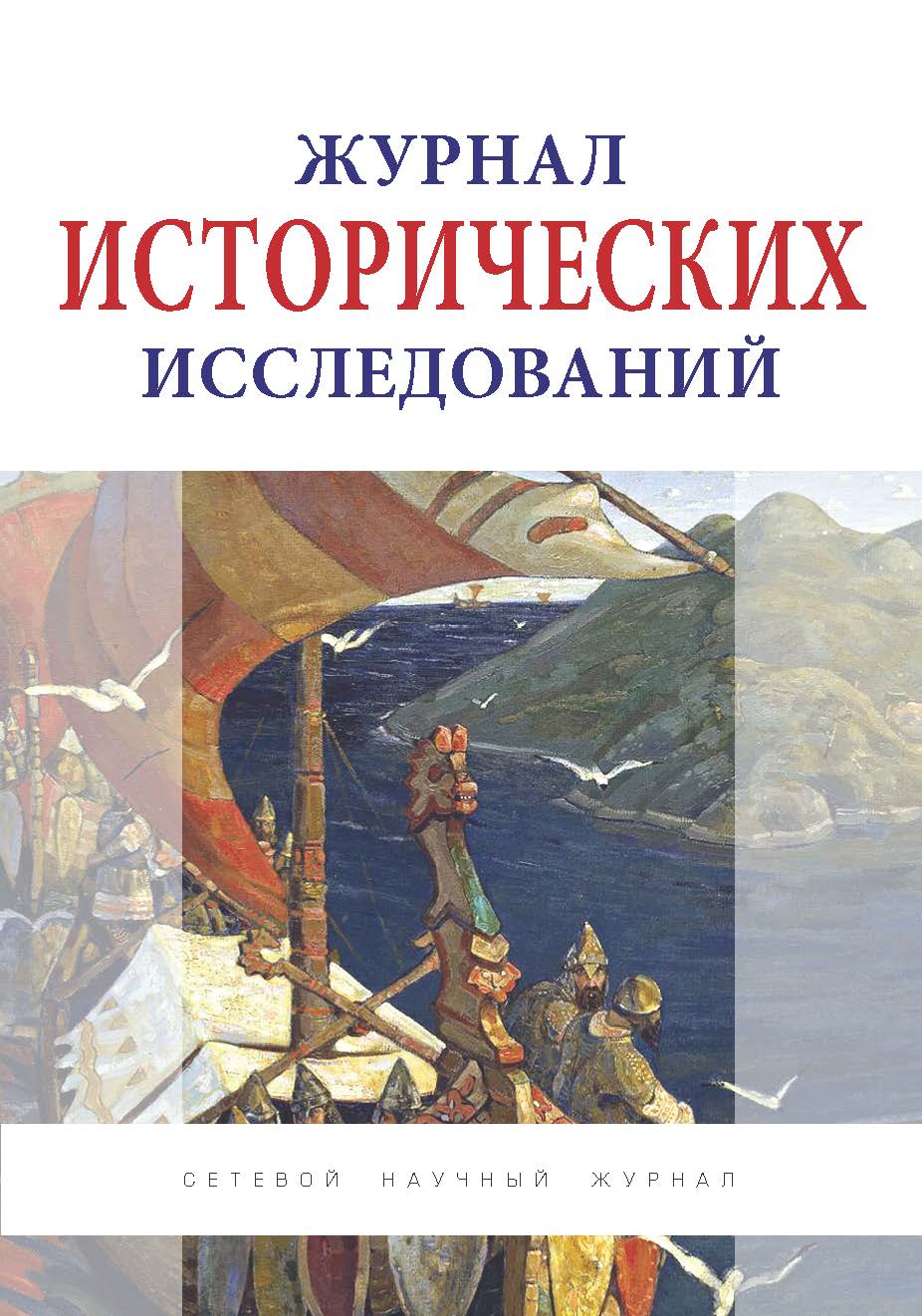from 01.01.2022 until now
Moskva, Russian Federation
This article examines the complex issues of national identity in Little Russia during the period of its autonomy within the Russian Empire. The purpose of the article is to assess the impact on the processes of autonomy and national identity of Little Russia of the cultural policy of the Russian Empire, nationalist movements, including in other Russian provinces, and the consequences of the government’s socio-political reforms. The work uses qualitative research methodology, using both primary and secondary sources to study issues related to the topic of Little Russian identity. Scientific methods such as content analysis, discourse analysis, systemic and comparative approaches were also used. The analysis shows that the self-awareness of the population of Little Russia was not static, but was formed under the influence of the complex interaction of the internal dynamics of the territory’s development and external influences on the state. As conclusions, we can summarize that the national identity of Little Russia as part of the Russian Empire was formed under the influence of a number of factors, including the unique geographical location of this territory, rich history, cultural landscape formed through the combination of various ethnic groups and cultures, the intersection of Eastern and Western influences. The interaction of these realities contributed to the formation of a special Little Russian identity, which was both a derivative of objective circumstances and a reaction to the strengthening of Russia’s imperial policy. The autonomy of Little Russia within the Russian Empire was not absolute, but in different periods was characterized by varying degrees of self-government and cultural freedom, and as a result, influencing the national identity of Little Russians. The scientific significance of the article lies in its attempt to explore the nature of the dynamics of national identity in autonomous regions within large empires and to identify the features of the relationship between regional autonomy and nationalism. The theoretical significance of the study lies in the possibility of drawing parallels with similar situations in other countries, when regional identity is formed under the auspices of larger political entities. Conclusions: The process of forming national identity in Little Russia is closely related to the interaction between Ukrainian and Russian cultural influences, which in turn played a key role in the development of Ukrainian national identity. The policy of the Russian Empire in relation to Little Russia was often focused on the integration of Ukrainian territories into a single state and cultural space, which included the Russification and strengthening of control over local administration and education. These measures led to the resistance and formation of awareness of their own cultural and historical uniqueness among the Ukrainian population.
national identity, Little Russia, Russian Empire, Little Russian identity, cultural policy, autonomy, self-government, historical analysis
1. Amanzhalova D.A., Kuleev S.V. Nacional'naya politika Rossii: istoriya i sovremennost'. M.: Russkiy mir, 1997. – 680 s.
2. Geopoliticheskie faktory vo vneshney politike Rossii: vtoraya polovina XVI – nachalo XX veka / otvetstvennyy redaktor S.L. Tihvinskiy. M.: Nauka, 2007. – 359 s.
3. Grushevskiy M. Nacional'nyy vopros i avtonomiya. Sankt-Peterburg: tip. t-va «Obschestv. pol'za», 1907. – 15 s.
4. Dolbilov M., Miller A.I. Zapadnye okrainy Rossiyskoy imperii. M.: Novoe literaturnoe obozrenie, 2006. – 606 s.
5. Dyakin V.S. Nacional'nyy vopros vo vnutrenney politike carizma (XIX – nachalo XX vv.). SPb.: Liss, 1998. – 1000 s. EDN: https://elibrary.ru/YUNMYK
6. Ekel'chik S. Istoriya Ukrainy: stanovlenie sovremennoy nacii. Oxford University Press MMVII. Izdatelʹstvo K.I.S, 2010. – 395 s.
7. Efimenko A.Ya. Istoriya ukrainskogo naroda / A. Ya. Efimenko. SPb.: Izdanie Akc. Obsch. Brokgauz-Efron, 1906.
8. Zapadnye okrainy Rossiyskoy imperii. M.: Novoe literaturnoe obozrenie, 2006. – 608 s.
9. Kappeler A. Rossiya kak mnogonacional'naya imperiya / A. Kappeler. M.: Progress-tradiciya, 2000. – 344 s.
10. Kul'chickiy K. (Mazoveckiy). Avtonomiya i federaciya v sovremennyh konstitucionnyh gosudarstvah. / K. Kul'chickiy (Mazoveckiy); Per. s pol. A. Patkina s dop., izm. i predisl. avt. special'no dlya rus. izd. M.: Izd. Petrovskoy b-ki v Moskve, 1907. – 214 s.
11. Linnichenko I.A. Malorusskiy vopros i avtonomiya Malorossii. Petrograd-Odessa, 1917. – 40 s.
12. Lor E. Rossiyskoe grazhdanstvo: ot imperii k Sovetskomu Soyuzu. M.: Novoe literaturnoe obozrenie, 2017. – 344 s.
13. Miller A.I. «Ukrainskiy vopros» v politike vlastey i russkom obschestvennom mnenii (vtoraya polovina XIX v.). SPb., 2000. – 65 s. EDN: https://elibrary.ru/ZAINFD
14. Miller A.I. Imperiya Romanovyh i nacionalizm: Esse po metodologii istoricheskogo issledovaniya. M.: Novoe literaturnoe obozrenie, 2008. – 248 s. EDN: https://elibrary.ru/QPINRZ
15. Radzievskiy V.A. Osnovnye rezonansnye subkul'tury v kul'turnom prostranstve Ukrainy: krosskul'turnyy analiz // Vestnik Sankt-Peterburgskogo gosudarstvennogo universiteta kul'tury i iskusstv. № 4 (17). - 2013. – S. 117-121. EDN: https://elibrary.ru/RMSPTD
16. Smit E.D. Nacionalizm i istoriki // Nacii i nacionalizm. - M.: Praksis, 2002. – S. 235-264.
17. Ul'yanov N.I. Proishozhdenie ukrainskogo separatizma. N'yu-York, 1966. – 288 s.
18. Florya B.N. O nekotoryh osobennostyah razvitiya etnicheskogo samosoznaniya vostochnyh slavyan v epohu Srednevekov'ya – Rannego Novogo vremeni (Arhivnaya kopiya ot 17 oktyabrya 2020 na Wayback Machine) // Rossiya-Ukraina: istoriya vzaimootnosheniy / Otv. red. A.I. Miller, V.F. Reprincev. M., 1997. – S. 9-27. EDN: https://elibrary.ru/UOXGKO
19. Hosking D. Rossiya: narod i imperiya. 1552-1917 / D. Hosking. Smolensk: Rusich, 2000. – 510 s.
20. Anderson B. Imagined Communities. New. London, New York: Verso, 2006.
21. Brass P.R. Ethnic groups and the state //Ethnic groups and the state. – Routledge, 2023. – S. 1-56.
22. Putin V. On the historical unity of Russians and Ukrainians //President of Russia. – 2021. – T. 12. – S. 5.4.






